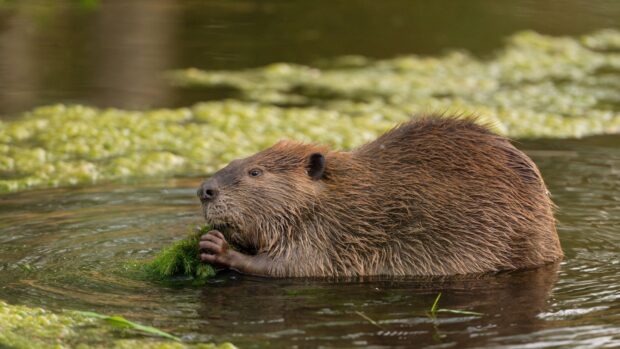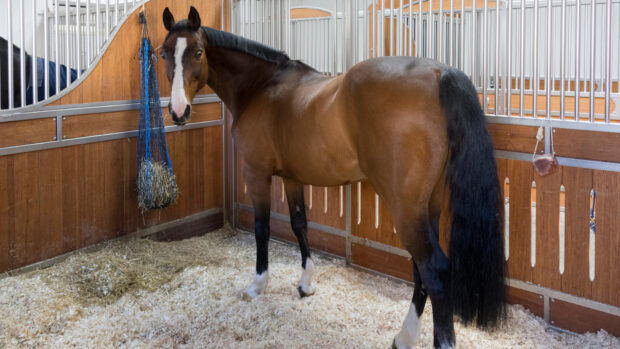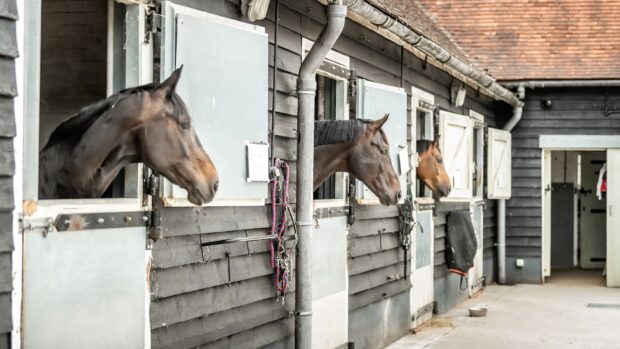Undesirable equine behaviour associated with a lack of forage has been discussed – as concerns are raised about owners misinterpreting learned helplessness for “coping”.
“Promoting positive equine wellbeing and behaviour through diet” was the topic of a World Horse Welfare webinar last month, during which experts discussed horses’ basic needs – friends, forage and freedom, and the importance of horses’ having enough access to enough forage.
Rosa Verwijs, senior lecturer in equine behaviour at Writtle University College, highlighted that horses usually spend around 16 to 20 hours per day grazing, if they have the choice to do so, and emphasised the satisfaction horses gain from foraging. She also discussed the challenges around equine obesity and restricting diets, but encouraged owners to look for different ways to provide horses with enrichment – for example, feeding hay in a variety of different slow feeders, instead of one very small-holed haynet, to help prevent frustration.
Rosa talked about different unwanted behaviours that can be caused by a lack of forage, such as stress, anxiety, aggression and resource-guarding – and how these might be displayed, such as abnormal oral behaviours, door-kicking, difficulty in handling and poor performance under saddle.
“Horses will do whatever they can to help them cope with the frustration and stress they’re feeling, and these coping behaviours can manifest in so many different ways,” she said, adding that depression can be seen in horses, and research in this area shows that as horses’ frustration increases, it can lead to learned helplessness.
“I think that’s where a lot of people mistake their horse as ‘coping’. People might say, ‘My horse was ridiculous for three weeks and then after that he was fine.’ That misinterpretation of shut-down horses is probably one of the most concerning for me as a behaviourist. These horses are not suddenly coping and saying ‘I’m fine,’ it’s them saying, ‘I’m just going to wait it out and hope life gets better.’
Justine Harrison, a certified horse behaviour consultant, said lack of forage is the cause or a contributing factor in “most” of the behavioural cases she has dealt with.
“It’s a huge problem. I’ve seen a massive range of behavioural problems in horses and ponies of all disciplines, from grand prix sport horses to a children’s pony,” she said.
British Equine Veterinary Association veterinary projects officer Lucy Grieve, who hosted the webinar, said owners need to keep evolving their management systems.
“Forget the idea of meals and the human way of feeding ourselves, horses are completely different. As humans we enjoy making feeds and buying different foods, but your horse’s needs are very different to what satisfies us as humans,” she said.
Lucy added that this is difficult when it comes to livery yards, where owners might not have as much of a say about forage and feeding routines.
“Education is key to try to get that message to those responsible for managing yards, and we can do that as a team and work together. If we keep singing from the same hymn sheet, we can only make our horses’ lives better in terms of diet, nutrition and day-to-day behaviour.”
You might also be interested in:

Being a pain, or in pain? We need to listen to our horses

Know your forage: which type is right for your horse?

Subscribe to Horse & Hound magazine today – and enjoy unlimited website access all year round
Horse & Hound magazine, out every Thursday, is packed with all the latest news and reports, as well as interviews, specials, nostalgia, vet and training advice. Find how you can enjoy the magazine delivered to your door every week, plus options to upgrade your subscription to access our online service that brings you breaking news and reports as well as other benefits.




